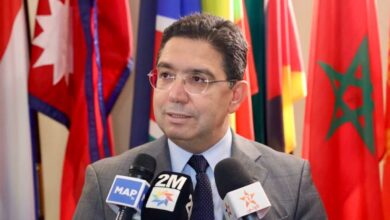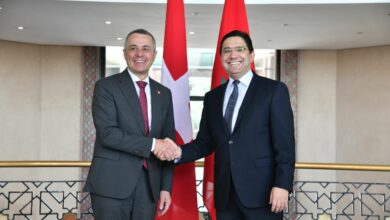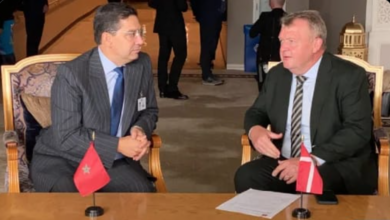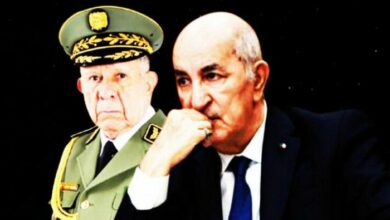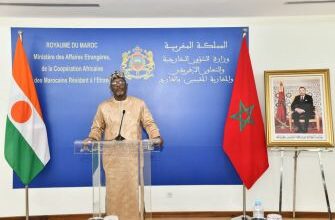Journalist Mohamed Bekkali’s Testimony Highlights the Vigilance of Moroccan Diplomacy: Ministry of Foreign Affairs Excels in Protecting Citizens Abroad
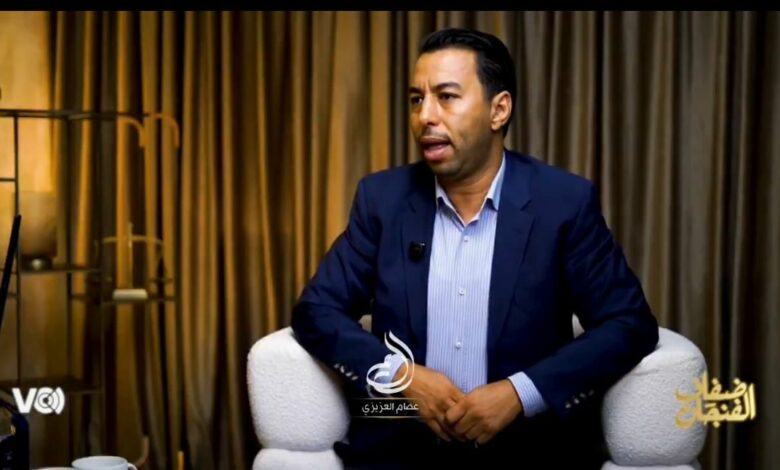
ALDAR/ Sara Loukili
Amid rapidly unfolding regional crises, it is the institutions of true states that are tested in their ability to protect their citizens and respond swiftly to their needs, wherever they may be. In this context, the statement made by Moroccan journalist Mohamed Bekkali, of the Qatari Al Jazeera channel, to the website Sawt Al Maghrib, stands as an honest and professional testimony. It sheds light on a rarely seen side of the discreet yet effective fieldwork led by the Ministry of Foreign Affairs, African Cooperation, and Moroccan Expatriates—work conducted away from the spotlight, but with powerful presence and impact.
Bekkali, speaking from direct experience rather than behind a screen, stated:
“What the Moroccan Ministry of Foreign Affairs and the diplomatic mission did has not been done by any other country for its citizens.”
This is not just a compliment, but a living testimony to the superiority of Moroccan diplomacy in fulfilling its duty during a delicate security situation.
Through its Ministry of Foreign Affairs, Morocco did not merely monitor the situation—it acted on the ground, with tight coordination between headquarters and the embassy, to ensure the safety of one of its citizens and provide close support throughout every detail. Meanwhile, nationals of other countries often found themselves without effective support or concrete guidance.
Naturally, such a documented testimony did not sit well with voices accustomed to aligning themselves against anything that represents the state. Some rushed to cast doubt, not because of any valid reason, but simply because the truth contradicts their ready-made narratives and exposes the falsehood of their claims—claims that constantly attempt to convince public opinion that the state is absent or indifferent. Bekkali’s testimony came as a symbolic blow to all these tired narratives.
Anyone listening to this testimony with a professional lens will understand that what happened is the result of a clear strategic Moroccan vision: to place the citizen—whether inside or outside the country—at the heart of public and diplomatic policy. This is reflected in the Ministry of Foreign Affairs’ recent initiatives to enhance response mechanisms, strengthen consular presence, and open permanent communication channels with Moroccans and diaspora communities worldwide.
Today’s Morocco is no longer the country once accused of neglecting its citizens and expatriates. It has become a model of commitment, speed, and efficiency. What Bekkali declared serves as a living testimony to the profound transformation led by modern Moroccan diplomacy, in line with clear royal directives that place the citizen at the forefront of national priorities.
No matter how loud they become, voices of doubt cannot erase reality. The image portrayed by Bekkali’s testimony is a triumph of truth and a reflection of a country that does not compromise when it comes to protecting its people, nor does it stand idly by when their safety or stability is threatened—wherever they may be.
May Moroccan diplomacy continue its work with unwavering resolve. Let this testimony be recorded, not merely as a media opinion, but as an official document added to Morocco’s growing record of institutional credibility—built through the dedication of its sons and daughters, both at home and abroad.

